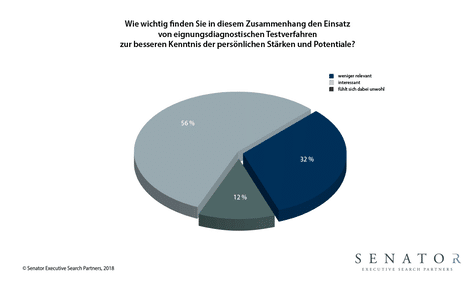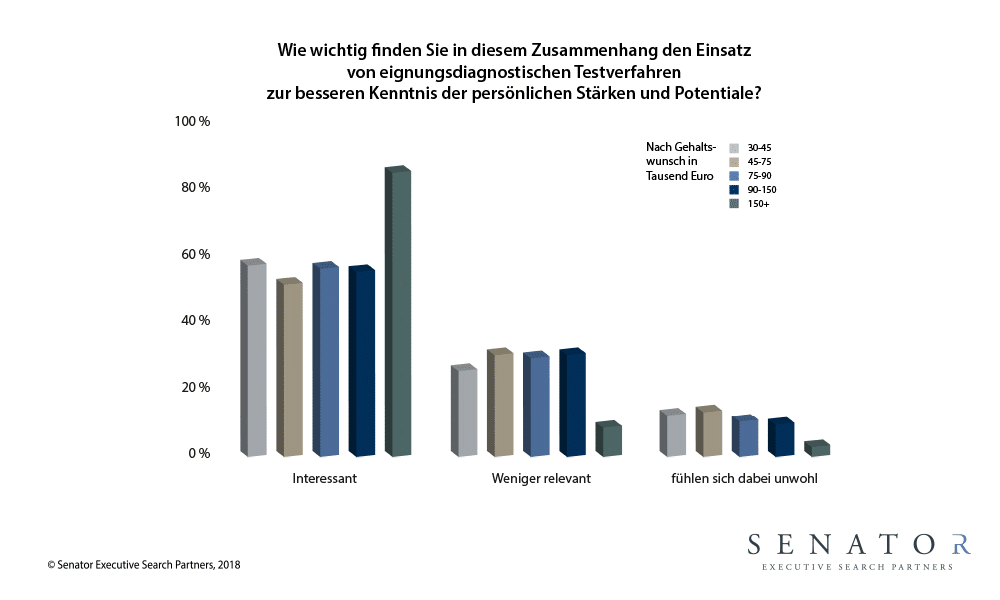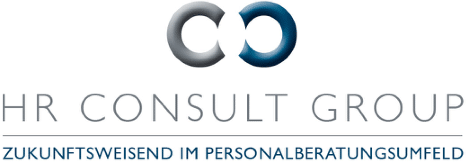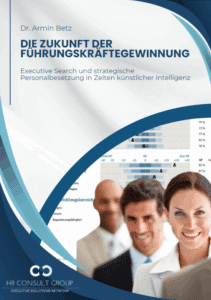Knowing your own strengths precisely and having concrete ideas about where you want to go professionally is often more of a wish than a reality for many job seekers. In order to work out the candidate's strengths and weaknesses, wishes, and prospects individually, personnel consultancies offer so-called aptitude diagnostics for such cases.
The latest survey by HR Consult Group AG on the topic of "recruitment consultancies," in which more than 10,000 participants responded, examined, among other things, how candidates evaluate such aptitude assessment procedures.
More than half of those surveyed are interested in aptitude testing.
The majority (56 percent) stated that they were interested in aptitude testing procedures. For 32 percent of respondents, this topic is less interesting, and only 12 percent feel uncomfortable with such tests.

This trend is confirmed by a detailed analysis of the evaluation. The results, broken down by age of the respondents, show that the younger target group (17-30 years) shows the greatest interest in aptitude diagnostics, at 60 percent. This is closely followed by the middle age group (31-45 years) with a share of 58 percent and the 45+ age group with 54 percent. The greatest skepticism toward aptitude diagnostics is shown by the 45+ generation with 15 percent, followed by the middle (11 percent) and young age groups (8 percent).
When participants are broken down according to their desired salary, 89 percent of candidates with a desired salary of €150,000 or more show the greatest interest. This is followed at a considerable distance by the group with the lowest desired salaries of €30,000 to €45,000, at 60 percent. The group with a desired salary of €45,000 to €75,000 (14 percent) showed the greatest rejection of aptitude testing procedures.

"Aptitude testing is a great thing for job seekers. Whether you're just starting your career or looking for a new direction, the results of the test help to identify the candidate's individual strengths and thus the best career opportunities. My many years of experience as a personnel consultant show that these procedures not only increase the chances of success, but also save time and spare your nerves," reports Daniel Fertl, personnel consultant at SENATOR.
About the author

After completing his studies in automotive engineering and industrial engineering, he began his professional career in the automotive industry in the areas of sales, development, and marketing, and also spent a year in Japan with one of the largest automotive suppliers.
He then moved to a world-renowned premium car manufacturer, where he was responsible for product marketing for Japan and South America as well as marketing strategy for North and South America.
In 1994, he decided to become self-employed and founded a personnel consulting firm in Munich, where he has been driving development and expansion for over 20 years. As managing director, his industry focus is naturally on the automotive world as well as mechanical and plant engineering.
His doctorate in the field of aptitude diagnostics ideally complements his areas of expertise, particularly in relation to human resources and management consulting. His dissertation deals with the identification and verification of typical personality traits of engineers and the definition of areas of development for a successful career.
These are scientifically derived and presented in the book "Eignungsdiagnostik im Praxiseinsatz" (Aptitude Diagnostics in Practical Use).
At the same time, he focuses on establishing networks and cooperation models as well as the continuous development of systems and processes in HR consulting.
Over the past 20 years in HR consulting, he has developed several brands that continue to operate successfully on the market today.



